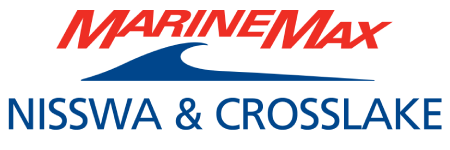How The Right Charger Can Prolong Your Boat Battery's Life
 Marine batteries are much different than your traditional car battery, as is the charger. You can use this guide to learn about charging your boat battery and avoiding mistakes that can have an opposite effect than you intended. Contact us at Nisswa Marine, located in Nisswa, Minnesota, for more information on marine batteries and chargers. Customers from Minneapolis and St. Cloud, Minnesota, are also welcome to contact us.
Marine batteries are much different than your traditional car battery, as is the charger. You can use this guide to learn about charging your boat battery and avoiding mistakes that can have an opposite effect than you intended. Contact us at Nisswa Marine, located in Nisswa, Minnesota, for more information on marine batteries and chargers. Customers from Minneapolis and St. Cloud, Minnesota, are also welcome to contact us.
Marine Battery Charger Types
Different types of marine batteries will react differently to charging. First of all, the different battery types are:
- Flooded wet cell.
- Gel.
- Absorbent glass mat, or AGM.
- Lithium-ion.
When it comes to the actual charger types, there are two main choices: portable and onboard. However, many chargers, particularly those that are less expensive, will actually shorten the life of your batteries. Portable chargers are nice to have in certain situations, mainly because they are portable. For example, if your battery is off the boat, it's convenient to charge it elsewhere.
Onboard chargers are more expensive, but you will likely find that they pay for themselves after a few uses because they are always wired up. All you need to do is plug the charger into a 120-volt outlet and let it do the work for you. Additionally, these types of chargers are more technologically advanced to provide more desirable multi-stage charging.
Multi-Stage Charging
Without too much technical detail, multi-stage charging involves three stages that help prolong the battery's life without you having to supervise it. The three stages are bulk, absorption, and float. It relies on microprocessors, or computer chips to give the battery the proper amount of voltage and amperage.
The Right Charger
There is some debate about “the right charger.” Many recommend a charger size from 10% up to 25% of the battery's amp-hour rating. The higher the amp-hour rating, the faster the recharge time. To find the approximate recharge time, you can use this simple formula—the number of amp-hours to be recharged divided by 90% of the rated output of the charger.
Ultimately it depends on the amount you want to spend and your individual needs. Higher amperages tend to be more expensive, but longer charge times require lower currents and are more gentle on batteries. Either way, a good charger will help you to get the most out of your batteries and get back to what's important, having fun on the water. Stop by Nisswa Marine in Nisswa, Minnesota, to learn more about marine batteries and chargers. We proudly welcome Minneapolis and St. Cloud, Minnesota customers, too!
